Legends of the Moscow Zoo: Reptilian rumors and killer crocs
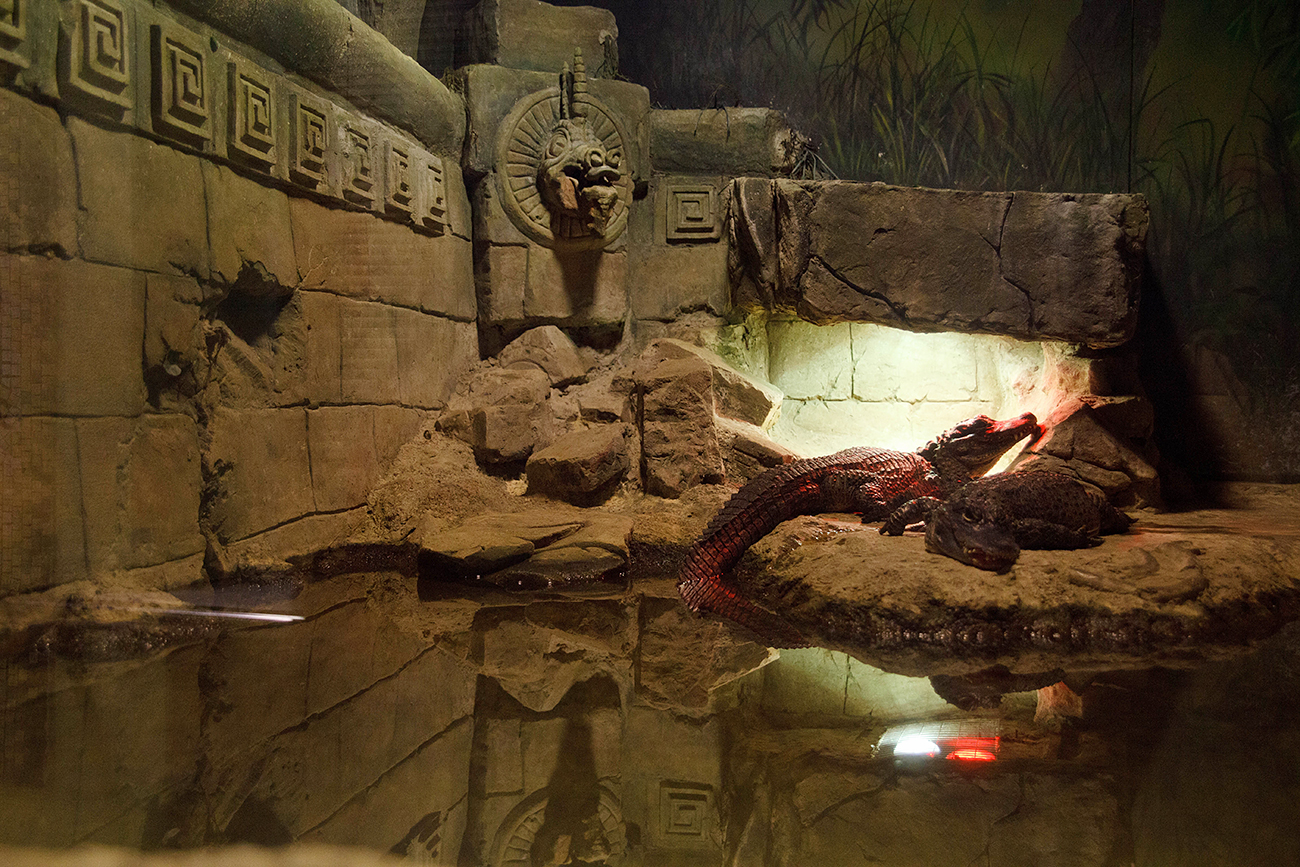
A female alligator was brought to Moscow by the last king of Cambodia. The crocodile, along with several other animals, was supposed to be cooked up as part of a friendly dinner with the Soviet government.
Ruslan Sukhushin/RBTHHerpetologist Dmitry Vasilyev, a doctor in veterinary medicine, has been working at the Moscow Zoo for 30 years. Each day of his working life is a heroic feat or at least looks like something out of a Hollywood thriller. But Vasilyev is far too modest to admit this. "I was born to a family of zoologists, so I did not have much of a choice really," he says. "At first, I set about studying different bugs, but they require patience, whereas I am more of a slacker. So I had to switch to larger animals."
Entering the terrarium clad in armor
The notion that Vasilyev is a slacker is, of course, a joke. When it comes to working with crocodiles, being lazy can get you killed.
While showing us a rare species of Chinese alligator on the brink of extinction, he warns us that the alligators watching us from behind thick glass eat everything that moves. Back in Soviet times, the female alligator came to the Moscow Zoo as part of a swap with China. Once here, she ate a male alligator and nearly swallowed one of the zoo attendants. As punishment, she was exiled to the United States, although she behaved rather poorly there too, tearing a leg off her new American fiancé. After this incident, she was sent back to Moscow, and this time not alone, but with offspring that she had somehow managed to conceive.
"That said, the Americans did us a bad turn too," Vasilyev recalls. "The baby alligators were in a terrible state and had to be treated for a long time. In the end, only two out of six survived."
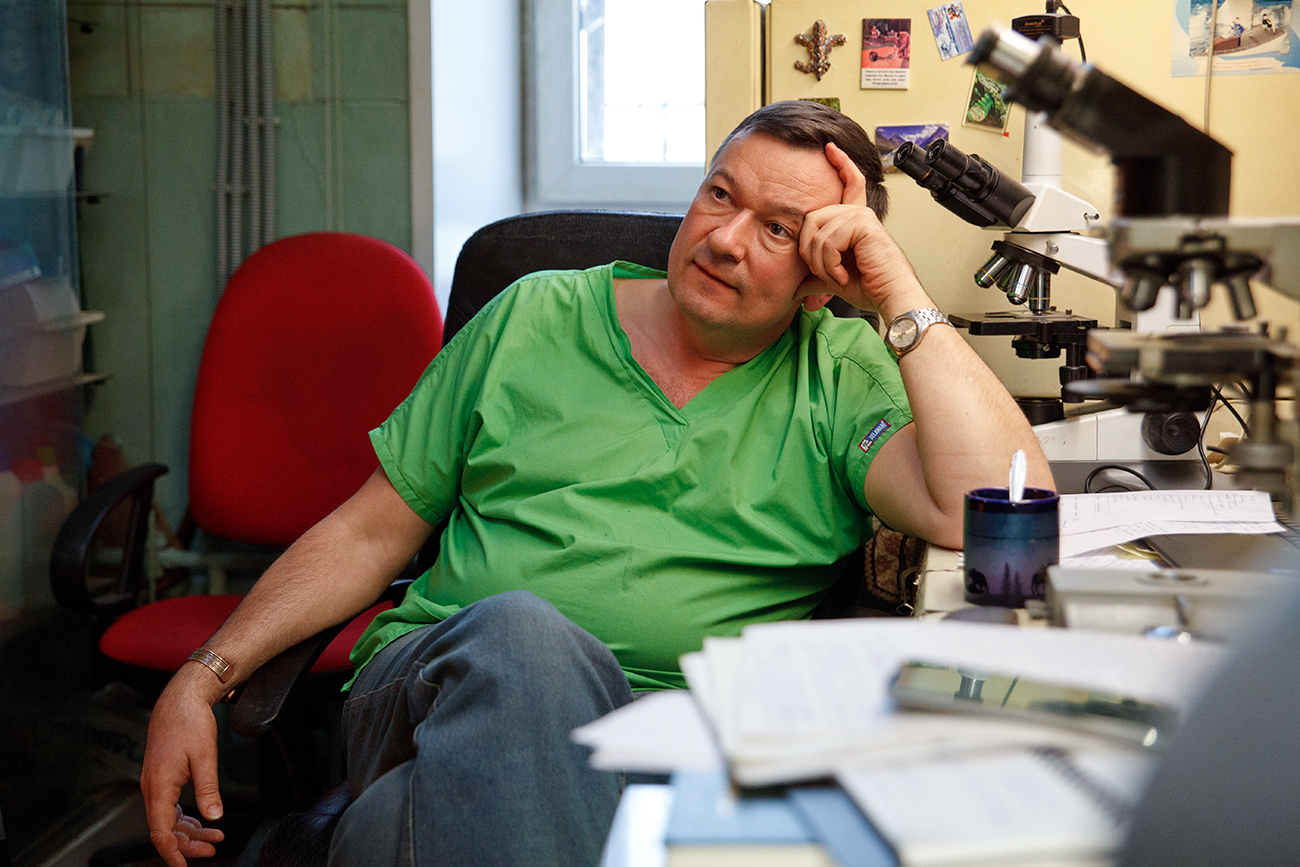 "The notion that Vasilyev is a slacker is, of course, a joke. When it comes to working with crocodiles, being lazy can get you killed." Photo: Dmitry Vasilyev. Source: Ruslan Sukhushin/RBTH
"The notion that Vasilyev is a slacker is, of course, a joke. When it comes to working with crocodiles, being lazy can get you killed." Photo: Dmitry Vasilyev. Source: Ruslan Sukhushin/RBTH
We ask whether crocodiles feel gratitude toward people who are good to them like, for example, the crocodile in the popular Soviet cartoon about a bird called Tari? And do they recognize people in general? "They definitely commit things to memory," the veterinarian explains. “If your crew of four people were to walk into a hut now, and the crocodile saw it, and then only three of you walked out, it would realize that one person still remains inside. In any event, recognition does not affect their goodwill. They can bite anyone at any time."
It turns out that it is virtually impossible to tell what mood a crocodile is in just from looking at it. "From the outside, you will not figure anything out," Vasilyev explains. "Most of the time, a crocodile remains motionless. It is in its nature to not make any movements while hunting. They don’t even appear to breathe or blink. If they move an eyelid, they can kiss their lunch goodbye. Crocodiles don’t show any emotions, even when they are seriously ill. Except that they stop eating. That said, even when healthy they can go through a whole winter without eating."
This is why when Vasilyev enters the terrarium that holds his patients, he wears what could be described as a knight’s armor, except that instead of a shield he has a thick piece of plywood and, instead of a lance, a broom. Brooms have to be replaced frequently since after a while all that is left of them are stumps of wood. "My whole experience of operating on and treating crocodiles has been nerve-racking. It’s not something that I look back on fondly." Many years ago, one patients bit off one of his fingers. Luckily, the finger was promptly sewn back on, and to an untrained eye the hand bears no visible signs of the accident.
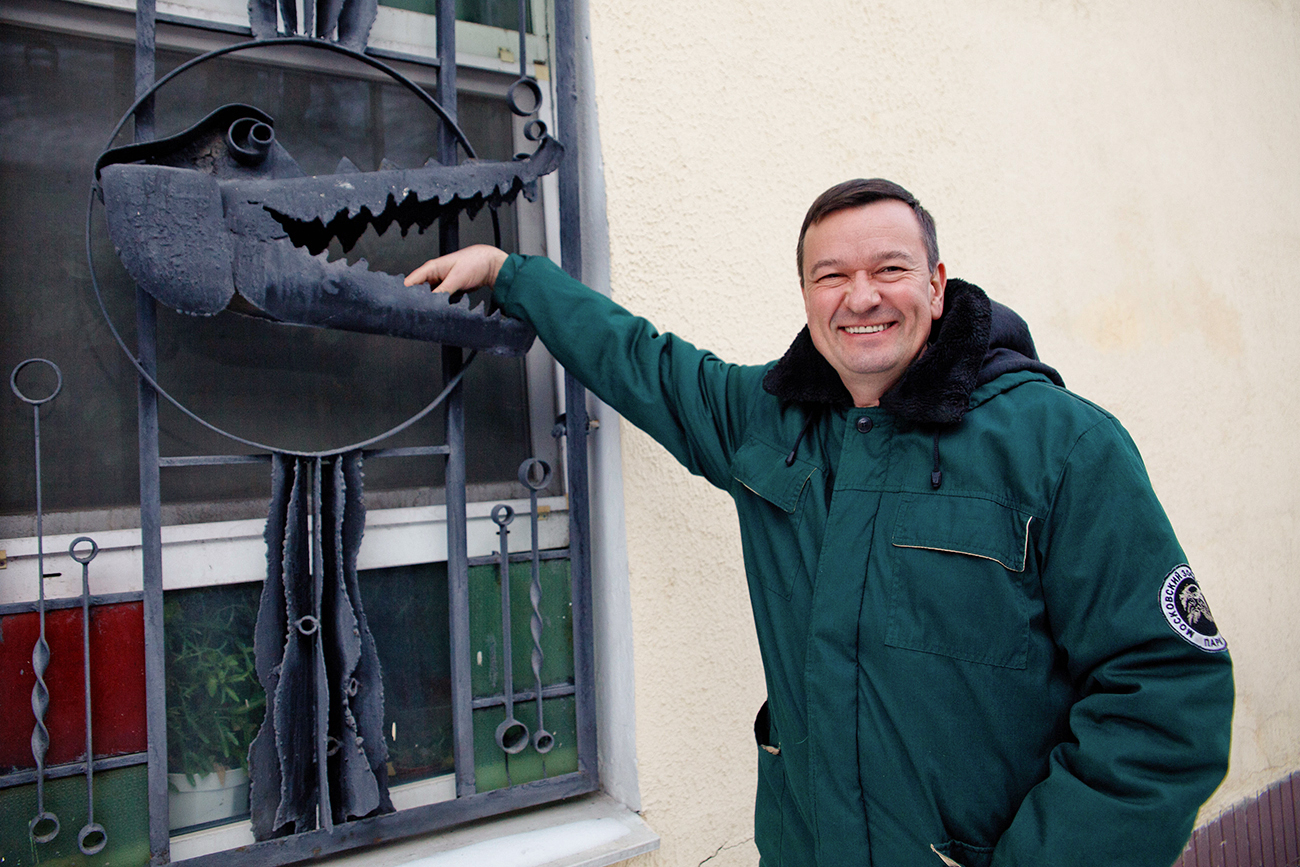 Many years ago, one patients bit off one of his fingers. Luckily, the finger was promptly sewn back on, and to an untrained eye the hand bears no visible signs of the accident. Photo: Dmitry Vasilyev. Source: Ruslan Sukhushin/RBTH
Many years ago, one patients bit off one of his fingers. Luckily, the finger was promptly sewn back on, and to an untrained eye the hand bears no visible signs of the accident. Photo: Dmitry Vasilyev. Source: Ruslan Sukhushin/RBTH
From Berlin with victory
We admit to Vasilyev that the main purpose of our visit is to meet a Mississippi alligator named Saturn that, rumor has it, was Hitler’s favorite crocodile. At the same time, we hope to put to rest once and for all whether this story is true or just an urban legend.
Vasilyev leads us to the crocodile. Unexpectedly, he invites our photographer to enter the terrarium, albeit with one caveat. "Provided you do not get close to him, Saturn presents no danger. He is old and not as quick as he used to be. There are no documents on this, but he is definitely in his late 80s. The oldest crocodile of this species lived to 104, but that’s the record."
It turns out that until recently Saturn had gone nearly a year without eating, and the zoo staff had already emotionally prepared themselves to bid him farewell. "At first, we took his blood samples," Vasilyev recalls, "analyzed them, tried to inject him with vitamins (in order to give Saturn an injection, it is necessary to drain his pool, drive him up the stairs and tie him up), but then we decided that old age is an ailment that has no cure, and left him in peace. Nevertheless, he recently began to eat again (in the wild, alligators usually eat shellfish, and at the zoo usually fish, hardly ever hunting big game). It looks like death retreated for a while. That said, it may well be that you are the last people to film him alive."
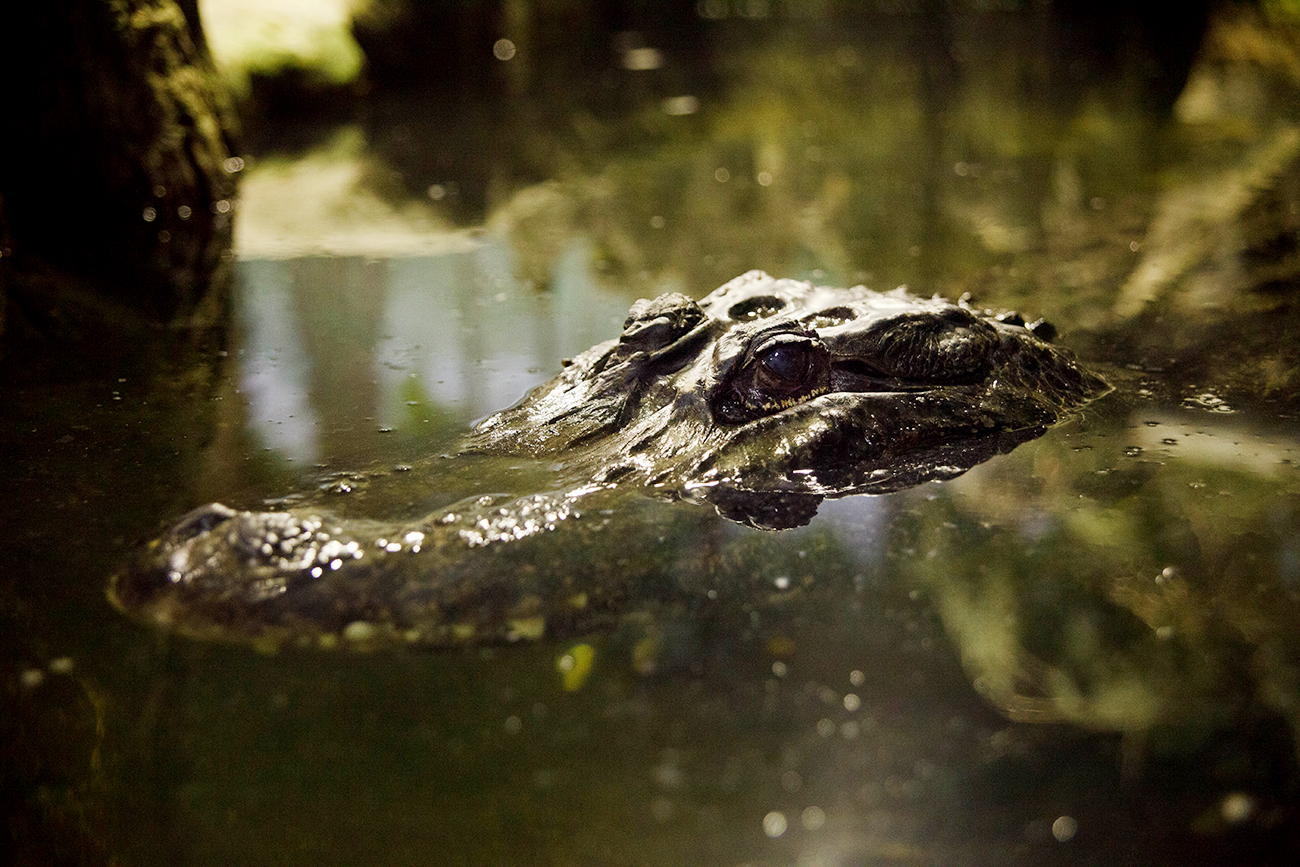 "You may be the last people to film him alive." Saturn. Source: Ruslan Sukhushin/RBTH
"You may be the last people to film him alive." Saturn. Source: Ruslan Sukhushin/RBTH
Vasilyev is categorical about Saturn's alleged Nazi past, insisting that the crocodile was not "Hitler's pet," although it is almost certain that they met. From around the mid-1920s, Saturn lived in the Berlin Zoo, which Hitler, who is known to have loved of animals, visited on more than one occasion. In 1945, during the Battle of Berlin, the zoo was almost completely destroyed in bombing, but the crocodile miraculously survived. At first, he ended up with the Brits since the zoo was in the British sector in the western part of the city. A year later, in 1946, they gave him over to the Soviet Union as a gift.
"I am not sure what that gift was supposed to symbolize,” Vasilyev says, “but Saturn felt very much at home here. I can remember only a couple of times when he was sick." In the late 1950s, the crocodile even married a local beauty named Shipka, but the doctor is not keen to reminiscence about her since she was the one who bit off his finger. "She had an awfully bad temper, unlike her husband. Saturn, you could say, is sentimental. When in 1993, not far from here, tanks were rolling along the Garden Ring, he even cried because of the vibrations. It must have reminded him of the Battle of Berlin.
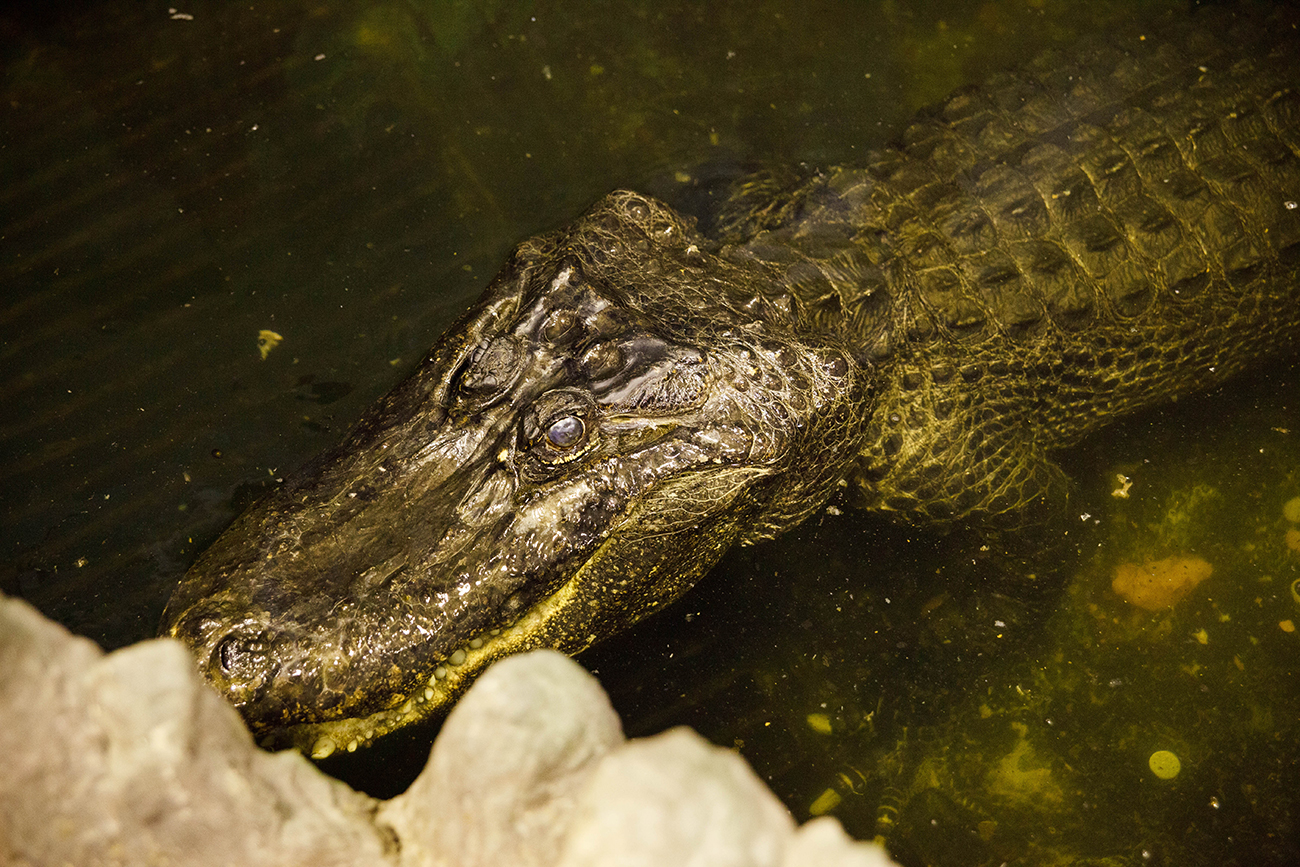 "When in 1993, not far from here, tanks were rolling along the Garden Ring, he even cried because of the vibrations. It must have reminded him of the Battle of Berlin." Photo: Saturn. Source: Ruslan Sukhushin/RBTH
"When in 1993, not far from here, tanks were rolling along the Garden Ring, he even cried because of the vibrations. It must have reminded him of the Battle of Berlin." Photo: Saturn. Source: Ruslan Sukhushin/RBTH
King’s mercy
The terrarium next to Saturn's holds reptiles with an equally fascinating story, and so it is a shame that people are not as interested in them. Saturn’s neighbors are two large Siamese crocodiles from Southeast Asia whom Vasilyev, somewhat frighteningly, refers to as "cannibals." "They move very fast on the ground,” he notes. “At a speed of up to 10 meters a second. There is no escaping them."
 Source: Ruslan Sukhushin/RBTH
Source: Ruslan Sukhushin/RBTH
However, this is not the only fascinating thing about them. Vasilyev introduces us (from behind the glass, of course) to a female who was brought to Moscow 30 years ago by the last king of Cambodia, Norodom Sihanouk. Not as a gift, but as food: The crocodile, along with several other animals, was supposed to be cooked up as part of a friendly dinner with the Soviet government. In the end, however, either there was a shortage of experts in cooking crocodile meat, or the Soviet officials were not keen on such exotic food. One way or another, the crocodile got lucky and was not eaten.
"The morning after the dinner, we got a call and were invited to take all the animals that hadn’t been eaten," Vasilyev recalls. "What remained were two Indian pythons, some terrapins and this female crocodile–although she was in a completely frozen state. Her scales, once they were defrosted, fell off. We treated her for a long time, but when we came the next morning, we saw her lying dead on the floor. We prodded her with a stick, but no reaction. Our boss at the time, Frolov, crouched next to her, saying, ‘You poor thing’ and all that… And suddenly she snapped her mouth! It was very scary. All the more so because it was just my first month on the job. It was only later that I learned that if she snaps her mouth, it does not necessarily mean that she’s going to eat you. It is just what they do–loudly snap their mouths when they want to frighten you. We were lucky back then that she only wanted to frighten us."
Vasilyev never invited us to go into the terrarium with the Siamese crocodiles, which might be just as well.
Read more: 10 cuter-than-cute animals from Primorsky Safari Park>>>
If using any of Russia Beyond's content, partly or in full, always provide an active hyperlink to the original material.
Subscribe
to our newsletter!
Get the week's best stories straight to your inbox